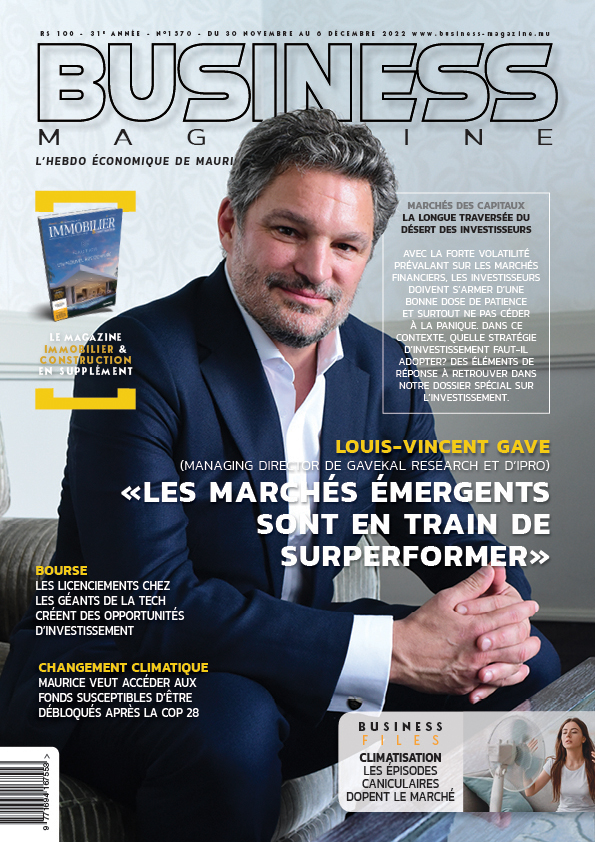A tale of the three strategies through recovery, revival and resilience
Share

Dr the Honourable Renganaden Padayachy, Minister of Finance, Economic Planning and Development, delivered his budget speech for year 2021/2022 within the context of a bleak environment characterized by the predicament of the Covid-19 pandemic which has not spared any country in the world either in terms of its lethal plight on human lives or attendant economic impact.
As the Honourable Minister would have it, in order to recover from the crisis, to revive all industries and improve social resilience, the onward strategy rests on three pillars which appear more to be grand intentions of general purport rather than specific architectures related to defined sectors or cluster of sectors. The Honourable Minister is pinning its hopes on dealing with sanitary urgency with vaccination being acclaimed as the game changer and which is expected to instil the fibre of economic renaissance throughout the series of measures announced. Those measures which have addressed a series of issues met with at the country level are not only related to the pandemic but also towards the uplifting of social infrastructure occasioned by the vagaries of climate change, for instance, the flooding we have been subjected to recently throughout the island.
Amongst the measures announced, it is notable that attention is now being drawn towards the areas where we either have a solid historical foundation or are otherwise gifted by nature. The new economic growth pole which is the Green Energy Industry will surely be the catalyst in ensuring that our future energy requirements will be met through the use of renewable energy like solar, biomass, wind and waves. Apart from enhancing GDP growth and creating new job opportunities, this initiative if well managed may position Mauritius as an eco-friendly jurisdiction not only in terms of attracting eco-tourism but also assist our Capital Market to facilitate the issue and listing of green and blue bonds in view of the financing aspects of renewal plants in the region.
Two of the major sectors of our economy which bring foreign currency to our economy, being vital for our balance of payments, seem to have received a deal of attention, though not to the extent and degree as one would expect. The first one, tourism, will have some breathing space as from 15 July 2021, where the country will be open to all vaccinated visitors, with tourists being allowed to leave the hotel after 14 days with a negative PCR test. As from 1st October 2021, subject to certain preconditions being met which are yet to be communicated, all vaccinated tourists with a negative PCR test will be allowed on the Mauritian territory without any restrictions.
The challenge to have 650,000 tourists over the next twelve months may be quite daunting especially with the uncertainty linked to our main tourist bases, coming from Europe, and where the economic situation and even the sanitary conditions may not be too promising. The other sector, deserving attention, namely the financial services sector and which has remained quite resilient amidst all the turbulences linked to the notoriously grey and black listings on the one side and the pandemic, on the other side, seems to be still waiting for real proactive and conjugated support from all stakeholders, including the authorities.
Apart from the traditional sectors like education, healthcare, manufacturing, it is noteworthy to mention about the attention granted to existing and novel sectors which are crucial in enabling the economy to rebound especially with the shift in priorities and change in operational mode due to the pandemic at the global level, for instance, ICT, Biotechnology & Pharmaceutical Industry. However, the measures announced under the Blue Economy seem to once again to miss the target as there is no dedicated and full-fledged plan with regard to harnessing our relatively wide territorial zone except from the fact that the Mauritius Oceanography Institute will launch an expression of interest in collaboration with the EDB for strategic alliance in the field of marine exploration, characterisation and commercialisation.
The Honourable Minister announced expecting a GDP growth of 9% for the fiscal year 2021/2022, with total expenditure and total revenue representing 32.5% and 27.5% of GDP respectively. The Budget deficit is expected to be contained at 5% of GDP while public sector debt to GDP ratio will be reduced from 95% (June 2021) to 91%, with the objective of bringing the latter down to less than 80% and 70% of GDP by end June 2025 and June 2030 respectively. The figures for public sector debt will need to be revised on the high side if we account for the previous advances made by the Bank of Mauritius to the Government and other guarantees granted, which are “offbalance sheet” and do not, thus, feature into the equation.




